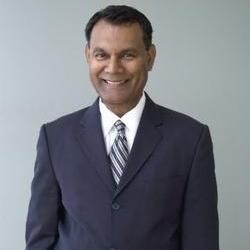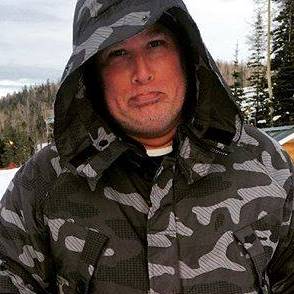 “It's a moment of total euphoria,” Edina Lekovich, director of policy and programming with the Muslim Public Affairs Council of Los Angeles, said during this morning's uninterrupted KTLA/Channel 5 news coverage of the events unfolding in Egypt after the resignation and departure of Egyptian President Hosni Mubarak. “My husband's family is Egyptian—he grew up in Orange County—but, you know, waking up this morning after the news last night was a moment of deep disappointment. So to wake up to the flipside of the news is hugely exciting.”
“It's a moment of total euphoria,” Edina Lekovich, director of policy and programming with the Muslim Public Affairs Council of Los Angeles, said during this morning's uninterrupted KTLA/Channel 5 news coverage of the events unfolding in Egypt after the resignation and departure of Egyptian President Hosni Mubarak. “My husband's family is Egyptian—he grew up in Orange County—but, you know, waking up this morning after the news last night was a moment of deep disappointment. So to wake up to the flipside of the news is hugely exciting.”
Lekovic said her husband was on his way to work this morning when she called him to say Mubarak had officially stepped down.
“He was screaming in the phone,” she said. “He was very excited. He is already talking to his family in Egypt, and they are talking about millions of people on the street. Everyone's hopeful for the next step. . . . There's a hope they can move to free and fair elections as quickly as possible, that the people's desires can be translated into freedom and democracy, which is a huge step forward.”
Lekovic said her husband has already hinted about going back to join the people in the streets at this historic moment.
“Many Egyptian Americans are whole-hearted Americans. . . . My husband spent summers there when he was little, growing up in Orange County, but he'd like to contribute. He wants to be part of the positive movement going forward.”
What he has found most exciting has been the way change has come—from the ground up, with no violence.
“I think that the Egyptian people for the first time in many decades have an opportunity to be for freedom and democracy, which is what they've been callign for,” Lekovic said. “And I think what's particularly exciting about this moment is it's a peaceful revolution.”
It demonstrates “what is possible by a people's movement started online and gaining momentum over the past two weeks,” she said, adding the result has been “something very positive for this country and that hopefully bodes well for the region.”
Speaking of the region, other authoritarian regimes should learn from the events in Egypt, Tunisia and Yemen that if they want to retain power, they had better “get proactive” by opening up their societies, allowing for more unfiltered media and guaranteeing free speech rights. “If you don't, people will take to the streets,” Lekovic said. “It is certain to spread.”
As for the United States, it must position itself to be friends of the Arab people, not the authoritarian regimes. “The U.S. has a very important role to serve as honest brokers who will allow the people to create their futures for themselves,” said Lekovic, who later advised the Obama administration in particular to “get out of the way” of revolutionaries in the region.

During the broadcast, Cypress College political-science professor Peter Mathews raised similar points.
“President [Barack] Obama has to be very clear that he stands on the side of the people of the Middle East,” Mathews said. “We can't stop the tide of history. President Obama has to be on the side of the people of the countries. If we are their economic partners, we will be viewed moderately. . . . The U.S. should be seen as supporting the progressive regimes of those countries,” which include Yemen and Saudi Arabia.
As for this particular moment, Mathews said Obama and Secretary of State Hillary Clinton must position themselves and the U.S. government as friends of those in the streets of Egypt. Obama seemed to get the message. Speaking from the White House at noon PST, the president said the U.S. is “a friend and a partner of all the people of Egypt,” that those in the streets have “inspired us,” and that he's prepared to provide any assistance needed to start a new government.
Obama also warned that difficult days are ahead, and while he expressed confidence “the people of Egypt can find the answers,” he called on the Egyptian military “to ensure a transition that is credible to the Egyptian people.”
Mathews is a fellow Democrat who tried to win his party's nomination away from Representative Laura Richardson (D-Long Beach) last year. Despite ethical and financial questions surrounding the incumbent 37th District congresswoman, she retained the nomination and kept her seat last November.
He believes the U.S. can maintain a positive influence with its friends in the Middle East and the safety of Israel. But America cannot be viewed as having a hand in selecting those countries' leaders.
“Here's the thing: the U.S. gives $1.3 billion to [Mubarak's] military and another $200 million or so to the rest of the government,” Mathews explained. “Most goes to the armed forces to keep stability and maintain the peace treaty with Israel. . . . Now whether the U.S. will work with a new Egyptian government to maintain that key role in keeping the peace will depend on who takes power.”
Mathews does not believe the Muslim Brotherhood has enough influence over Egyptians to take over. Even if it does play a greater role, he noted, there are liberal, moderate and fundamental factions within the Brotherhood that prevent it from ever speaking with one voice.
He also sees no repeat of an Islamic revolution like what took over Iran after the fall of the Shah in the 1970s. Most of those who brought the people out to the streets of Egypt were young students and college graduates who are not aligned with hard-line fundamentalists, Mathews noted.
You can hear more academic thoughts on the unfolding events in Egypt and neighboring countries beginning at noon Monday at Chapman University in Orange, where three faculty members with expertise on Middle East issues participate in “The Arab Youth Revolt: Chapman Experts Discuss the Events in Egypt and the Greater Middle East.”
The panelists are James J. Coyle, co-author of Politics in the Middle East: Culture and Conflict, who before coming to Chapman served 24 years in the U.S. government with numerous assignments throughout the Middle East; Egypt-born political-science professor and Middle East expert Nubar Hovsepian, who was last in his homeland in October and is the author of The War On Lebanon and Palestinian State Formation: Education and the Construction of National Identity; and, Donald Will, the Delp-Wilkinson Professor of Peace Studies whose 11 years as a nongovernmental observer at the United Nations included promoting a just peace in the Middle East. He was a presenter at the First UN Seminar on the Question of Palestine convened in Arusha, Tanzania, in July 1980.
The roundtable happens in Beckman Hall, Room 404, Chapman University, 1 University Dr., Orange. Mon., noon-1 p.m. The event is free and open to the public. For more information, call (714) 997-6947; for parking info, go to http://www.chapman.edu/map/parking.asp.

OC Weekly Editor-in-Chief Matt Coker has been engaging, enraging and entertaining readers of newspapers, magazines and websites for decades. He spent the first 13 years of his career in journalism at daily newspapers before “graduating” to OC Weekly in 1995 as the alternative newsweekly’s first calendar editor.

